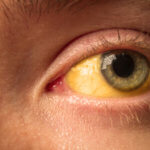
Basically, eosinophilic asthma can best be described as an allergic reaction gone wrong. An eosinophil is a white blood cell type essential to fighting infections and parasitic invasions. It occurs when the level of eosinophils in the blood increases as the white blood cells go into battle mode.
The symptoms of increased eosinophils include allergies, coughing, and respiratory problems. It results in the body fighting itself or sabotaging its own health. So, it stands to reason that in beating eosinophilic conditions, staying healthy is key. If you can give your body every chance of not having to raise its eosinophilic count, you won’t have to undo the symptoms of what can be a frightening asthma attack.
This kind of asthma is adult in onset – so if you’re a sufferer, be adult enough to consider using one or more of these natural remedies to help. Eosinophilic asthma need not be a health sentence!
1. Avoid Heartburn-inducing Foods
As adult-onset asthma with many causes, eosinophilia is mainly linked to an increase in levels of eosinophils, a subset of white blood cells. As a result, it is often thought of as blood and respiratory-related disease. But managing this disease includes minimizing every kind of onslaught possible. To that end, if you have eosinophilia, you have to understand that your food canal also plays a role. The esophagus, when it constricts, can cause you not only to choke but can intensify your asthma attack, making it that much worse.
To manage esophageal constriction, the ideal is to limit foods that cause heartburn by triggering an excess of stomach acids. These food culprits are usually very spicy, fatty and tasty in nature – although it will be different for everyone. As a start, try to eliminate garlic, onion, spicy foods such as chili-rich foods, mint, fried foods, fermented sauces, refined carbohydrates, alcohol, and fizzy drinks.


